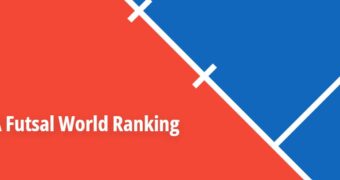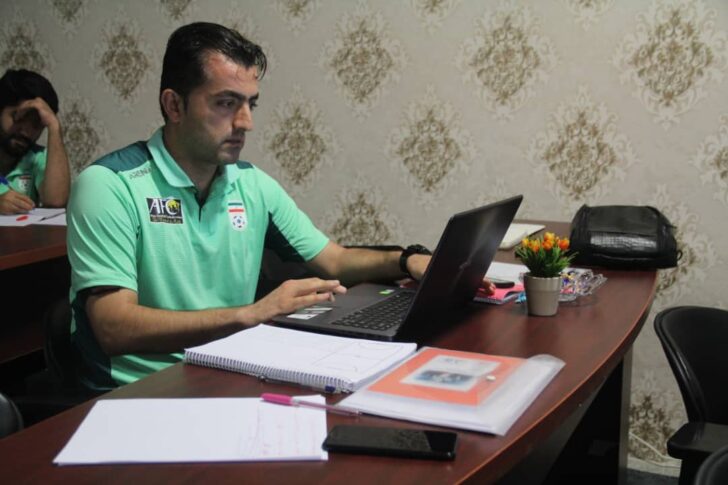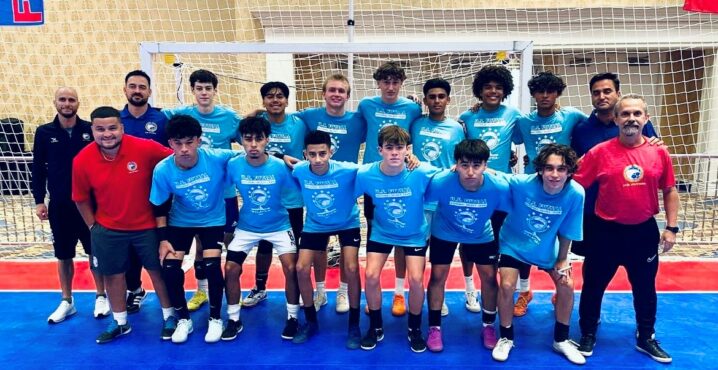Estimated reading time:5 minutes, 51 seconds
From tactical insights to dietary regimes, Alireza Abbasi discusses the essential pillars that drive modern futsal teams towards victory.
In the fast-paced world of futsal, where every split-second decision can alter the course of a match, the role of analysts and nutritionists has never been more critical. Alireza Abbasi, a respected figure in sports science and futsal, emphasizes that success on the court is not just about skill and strategy but also about the meticulous behind-the-scenes work that often goes unnoticed. Abbasi, who combines his expertise as a professor at Physical Education University and a veteran in the futsal community, shares his insights into the multifaceted role of analysis, the importance of sports nutrition, and the physiological demands placed on athletes in today’s game. In this exclusive interview, Abbasi sheds light on how these elements converge to build a foundation for success in futsal:
Interview Questions:
- The Role of the Analyst
“Match analysis is one of the most critical responsibilities of a futsal coach. This analysis is divided into three stages: before the game, during the game, and after the game. The process of match analysis is not only a key component of coaching, but it also significantly aids the coach in both short-term and long-term planning, as well as team preparation.
Coaches gather information by observing and analyzing games to understand the style of play, plan training sessions, recruit new players, adjust team strategies, make tactical changes, and manage substitutions and rest periods. A perceptive coach should identify key elements of the opponent’s playing style, such as their system, counter-attacking strategies, speed in transitioning to defense, motivation, intensity, and resilience after falling behind.
These factors often embody the philosophy and psychology of coaching. The ability to calmly and clearly monitor both teams’ players, even under pressure, is crucial. Recognizing game situations, understanding each player’s role on both teams, and identifying chaos during the game are vital skills for effective match analysis.”
- Addressing the Team’s Weaknesses and Strengths
“In European futsal, a professional analyst’s first priority is to identify and address their team’s weaknesses. For example, when the opponent uses a power play against our team, it’s natural to defend with four players. Here, the analyst plays a crucial role by advising the coach to select players who are stronger and more intelligent in defense, and who can effectively read the opponent’s game.
Simultaneously, the analyst must scrutinize the opposing team, identifying their potential weaknesses—such as a lack of concentration or the presence of a player with strong dribbling skills—and formulate strategies to exploit these areas.”
- Pre-Match Nutrition and Its Impact on Performance
“Pre-match nutrition plays a vital role in a futsal player’s performance. Starchy foods such as whole-wheat pasta, rice, potatoes, beans, salads, and grilled chicken provide a carbohydrate-rich meal with enough protein to supply energy for the match and aid in recovery. It’s advisable to avoid trying new foods before a game, as they could upset the stomach.
Athletes should avoid foods high in fat, like fast food or cream-based dishes, as they digest slowly and can make players feel sluggish. Similarly, high-fiber foods like beans, certain fruits, and vegetables should be limited, as they can cause digestive issues on game day.
Staying hydrated is equally important. Drinking enough water is essential, and fluids should contain electrolytes—such as sodium, potassium, and chloride—to maintain balance in the body and prevent fatigue. The pre-match meal should be consumed at least four hours before the game, rich in carbohydrates and lean protein to optimize performance.”
- The Importance of Physiological Knowledge for Coaches
“A futsal coach in Europe must be knowledgeable in many areas, having completed 14 foundational physical education courses, including anatomy, kinesiology, biomechanics, sports nutrition, coaching ethics, and psychology. For example, if a player is not mentally fit for a match, the coach should refrain from using them. A coach who understands basic physical education and sports science can recognize signs of injury or mental distress in players.
Carbohydrates are the body’s primary energy source because they metabolize into glucose, which is essential for almost every bodily function—from breathing and walking to any physical activity. Glucose is also necessary for the production of ATP, which facilitates vital biochemical processes in the body.”
- The Crucial Role of a Sports Psychologist
“In sports, particularly in football, the primary focus has traditionally been on physical skill and improving it through training and muscle memory. However, the importance of psychology in futsal has become increasingly evident to coaches. Today, professional athletes not only undergo field training but also participate in continuous sessions with an experienced sports psychologist to enhance team coordination, reduce anxiety, increase mental focus, and improve motivation.
Sports psychology in football examines factors that impact player performance and explores ways to create a psychologically encouraging environment for better learning, considering variables like age, reputation, social life, environmental conditions, injuries, and physical abilities. Futsal, like any other sport, involves events and changes that can affect a player’s mental performance. The psychologist’s role is to monitor the environmental, social, and mental actions of the players to minimize psychological disturbances. Additionally, they assess both individual performance and team communication and coordination.
In European futsal, psychology is now recognized as a sub-discipline, with many clubs employing sports psychologists as part of the coaching team.”
- Integrating Nutrition, Psychology, and Analysis
“Nutrition, psychology, and analysis are three interconnected elements that form the sides of a triangle essential to a team’s success or failure. When a team is successful, it’s usually because they have a professional nutritionist, psychologist, and analyst working behind the scenes, providing critical support and infrastructure.
For example, I once had to cancel a match against Iran’s national team just an hour before kick-off because I realized my players were not mentally prepared for such a challenging game. The team’s coach ignored my advice, and as a result, our team suffered four injuries and lost the match. This experience underscores the power of analysts—they can identify and strengthen vital aspects of a team’s performance. Professional sports, if they aspire to meet global standards, must rely on these experts to follow a scientific path.”
Organ Donation
Futsal Focus is a supporter of Dáithí Mac Gabhann and his family’s campaign to raise awareness of Organ Donation. We encourage our readers to learn more about Organ Donation: https://www.organdonation.nhs.uk/
Futsal Focus
You can read more articles about grassroots futsal and coaching by going to the top navigation bar or by clicking here
If you like this article and would like to keep updated on Futsal news? Then follow Futsal Focus via Google News. Follow our page which will send you an alert as soon as we publish an article. Please click here and follow us on Google.
You can also keep updated on Futsal news, developments, etc then please submit your email below in the Subscribe to Futsal Focus option.
















![Validate my RSS feed [Valid RSS]](https://www.futsalfocus.net/wp-content/uploads/2020/01/valid-rss-rogers.png)




